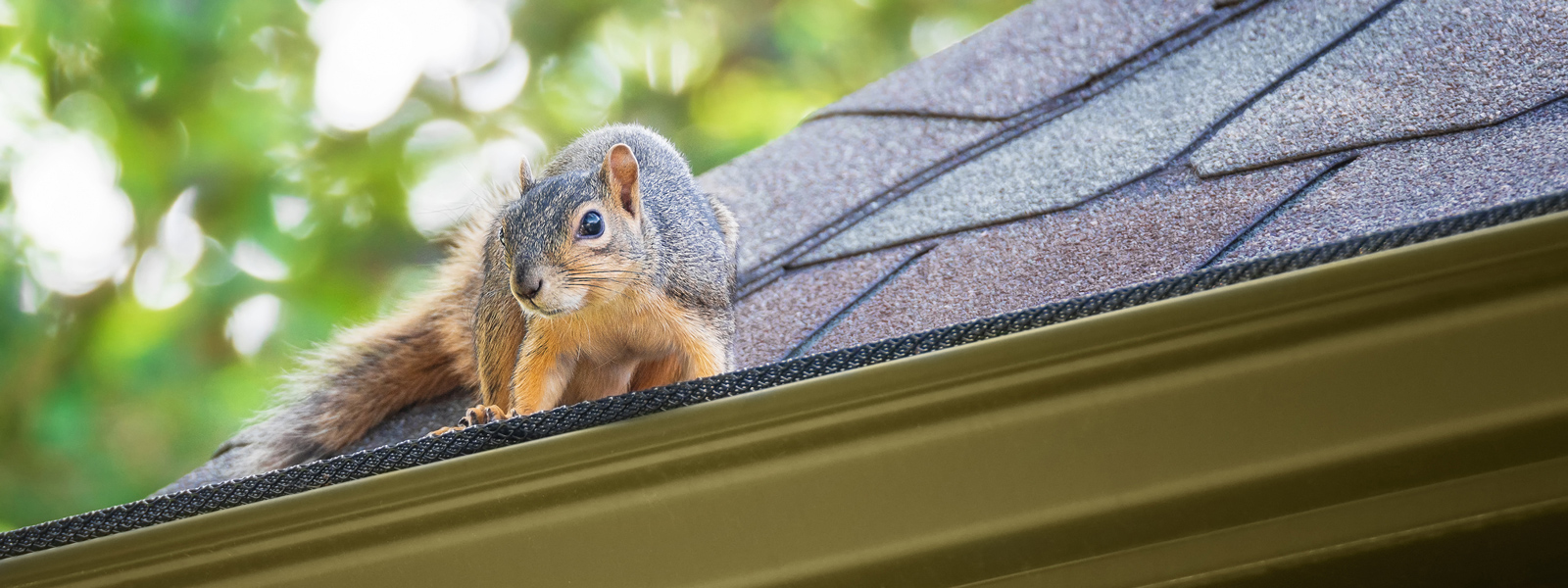Humane Rodent and Dead Animal Removal: Local Experts Near You.

Humane Rodent and Dead Animal Removal: Local Experts Near You.
Quickly and discreetly remove rodents and dead animals from your home. Find a trusted professional near you.
If you are having a problem with a wild animal, please select your city/town in Massachusetts from the map or list above. This Massachusetts animal control directory lists the phone numbers of professional wildlife removal experts throughout Massachusetts. These nuisance wildlife control operators deal with conflicts between people and wildlife such as squirrels living in an attic, or raccoons digging through the trash can. Call the licensed and insured professional listed here, and get the problem taken care of once and for all.
There are many Massachusetts pest control companies, but most of them treat for insect problems, and have little experience dealing with wild animals. Our specially trained technicians have the specific knowledge and equipment necessary for Massachusetts wildlife management. We are not extermination companies, we are professional Massachusetts trappers of wildlife. We are humane, and do a complete job - everything from animal damage repairs to biohazard waste cleanup.
Our Massachusetts animal control experts can handle many wildlife issues. Examples include Massachusetts bat control and removal. It takes an experienced pro to safely and legally remove a colony of bats. The same goes for bird control, such as roosting pigeons. We know all the species of Massachusetts snakes, and can safely remove them. We most commonly deal with animals in the home, such as rats or mice in the attic, or raccoons in the chimney. Select your area on the map above, and find a professional in your home town.
There are many Massachusetts pest control companies, but most of them treat for insect problems, and have little experience dealing with wild animals. Our specially trained technicians have the specific knowledge and equipment necessary for Massachusetts wildlife management. We are not extermination companies, we are professional Massachusetts trappers of wildlife. We are humane, and do a complete job - everything from animal damage repairs to biohazard waste cleanup.
Our Massachusetts animal control experts can handle many wildlife issues. Examples include Massachusetts bat control and removal. It takes an experienced pro to safely and legally remove a colony of bats. The same goes for bird control, such as roosting pigeons. We know all the species of Massachusetts snakes, and can safely remove them. We most commonly deal with animals in the home, such as rats or mice in the attic, or raccoons in the chimney. Select your area on the map above, and find a professional in your home town.
Massachusetts info: A New England state, MA has groundhogs, skunks, raccoons, and squirrels. Very few snakes. However, the company I list here really likes to specialize in bat removal in Massachusetts.
If you need assistance with a domestic animal, such as a dog or a cat, you need to call your local Massachusetts county animal services or SPCA for assistance. They can help you out with issues such as stray dogs, stray cats, dangerous animal complaints, pet adoption, bite reports, deceased pets, lost pets, and other issues. We have those numbers listed here for your convenience. If your city is not on our map, consult your local yellow pages or search for 'Animal Control' or 'SPCA' in your town.
If you need assistance with a domestic animal, such as a dog or a cat, you need to call your local Massachusetts county animal services or SPCA for assistance. They can help you out with issues such as stray dogs, stray cats, dangerous animal complaints, pet adoption, bite reports, deceased pets, lost pets, and other issues. We have those numbers listed here for your convenience. If your city is not on our map, consult your local yellow pages or search for 'Animal Control' or 'SPCA' in your town.
Boston, MA
22°F to 81°F
22°F to 81°F
- 7-spotted ladybug
- Cod
- Garter snake
- Black-capped chickadee, wild turkey
- Right whale
Massachusetts was almost entirely cleared for agriculture at one point in time, leaving very few areas of old forest in the state. There is significant secondary growth of both hardwoods and pine trees, but almost half of Massachusetts is now farmland. The state is one of the smallest in the country, consisting of only a little over 10,000 square miles. The state has a nice mixture of mountains which eventually fade into the sandy coastal plain which stretched into the Atlantic Ocean. Unfortunately, because of the once heavy deforestation, many native animals like wolves, cougars, elk, and wolverines are now considered extinct within the state.
The slow comeback of forests from abandoned farmland has been good to many smaller species of critters in this part of the country. Inland animals include coyotes, white-tailed deer, and turkeys. Two large animals have returned to the area, black bears and moose.
Three large bays on the Atlantic coast are also home to numerous animal species. Massachusetts has gray seals, harp seals, walruses, humpback whales, lobster, dolphins, and a variety of edible fish. With such an abundant food supply near the water and sandy beaches galore, one of the most common animals seen in the coastal region are seagulls. The gulls are scavengers and will not hesitate to steal food from people walking on the beach. Many of the local dining establishments have had to take precautions against the birds, as their fecal material can be damaging to surfaces and offensive to people.
Massachusetts also has the same nuisance creatures found in the rest of the country. Because of the young forest growth, raccoons can be particularly problematic, having few large trees to make their homes in. These intelligent creatures will often seek shelter in attics to have their litters rather than risking exposing the babies out in the wild. Joining the ranks of home invaders in this state are rats, mice, opossum, skunk, and squirrels. Other animals, like porcupines, will sneak into yards after food only sometimes enter homes by mistake. Unfortunately, these animals are so shy they usually curl up into a ball somewhere in the corner of the house instead of leaving the way they entered.
Beaver are another common sight in Massachusetts, though their numbers also suffered when the state began heavily farmed. Now, the beaver are returning, creating new ecosystems by blocking up waterways in secondary forests.
The slow comeback of forests from abandoned farmland has been good to many smaller species of critters in this part of the country. Inland animals include coyotes, white-tailed deer, and turkeys. Two large animals have returned to the area, black bears and moose.
Three large bays on the Atlantic coast are also home to numerous animal species. Massachusetts has gray seals, harp seals, walruses, humpback whales, lobster, dolphins, and a variety of edible fish. With such an abundant food supply near the water and sandy beaches galore, one of the most common animals seen in the coastal region are seagulls. The gulls are scavengers and will not hesitate to steal food from people walking on the beach. Many of the local dining establishments have had to take precautions against the birds, as their fecal material can be damaging to surfaces and offensive to people.
Massachusetts also has the same nuisance creatures found in the rest of the country. Because of the young forest growth, raccoons can be particularly problematic, having few large trees to make their homes in. These intelligent creatures will often seek shelter in attics to have their litters rather than risking exposing the babies out in the wild. Joining the ranks of home invaders in this state are rats, mice, opossum, skunk, and squirrels. Other animals, like porcupines, will sneak into yards after food only sometimes enter homes by mistake. Unfortunately, these animals are so shy they usually curl up into a ball somewhere in the corner of the house instead of leaving the way they entered.
Beaver are another common sight in Massachusetts, though their numbers also suffered when the state began heavily farmed. Now, the beaver are returning, creating new ecosystems by blocking up waterways in secondary forests.
Massachusetts Wildlife Invading Homes: A Growing Concern
Massachusetts's landscape and climate make it an ideal habitat for a wide variety of wildlife. Unfortunately, this can also lead to problems for homeowners as animals seek shelter and food in residential areas.
As the human population continues to expand, encounters with wildlife are becoming increasingly common across the United States. One of the most frustrating and sometimes dangerous issues for homeowners is when animals find their way inside.
One of the most common culprits is the raccoon. These intelligent and adaptable creatures are skilled at finding ways into homes through small openings in roofs, chimneys, or vents. Once inside, they can cause damage to insulation, wiring, and furniture.
The specific types of wildlife that may invade homes vary depending on the region, but some common culprits in Massachusetts include:
To prevent wildlife from entering your home, consider the following:
If you have a wildlife infestation, it's important to contact a professional wildlife removal service. They have the experience and equipment to safely and humanely remove animals from your home and prevent future infestations.
By taking these steps, you can help protect your home and property from wildlife damage while also ensuring the safety of both humans and animals
As the human population continues to expand, encounters with wildlife are becoming increasingly common across the United States. One of the most frustrating and sometimes dangerous issues for homeowners is when animals find their way inside.
One of the most common culprits is the raccoon. These intelligent and adaptable creatures are skilled at finding ways into homes through small openings in roofs, chimneys, or vents. Once inside, they can cause damage to insulation, wiring, and furniture.
The specific types of wildlife that may invade homes vary depending on the region, but some common culprits in Massachusetts include:
- Opossums: These nocturnal marsupials can squeeze through surprisingly small holes.
- Squirrels: Both ground squirrels and tree squirrels can cause damage to homes and gardens.
- Bats: Bats may enter through small gaps in the roof or walls, potentially carrying diseases.
- Rodents: Rats and mice can squeeze through tiny openings and contaminate food.
To prevent wildlife from entering your home, consider the following:
- Seal up entry points: Inspect your home for any gaps or cracks in the exterior and seal them with caulk or metal flashing.
- Install screens: Use screens on windows and vents to deter flying animals.
- Remove attractants: Keep garbage, pet food, and bird feeders away from your home to avoid attracting wildlife.
If you have a wildlife infestation, it's important to contact a professional wildlife removal service. They have the experience and equipment to safely and humanely remove animals from your home and prevent future infestations.
By taking these steps, you can help protect your home and property from wildlife damage while also ensuring the safety of both humans and animals
